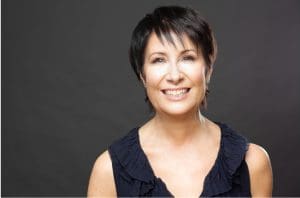Law, Human Rights, and Mediation. Member Spotlight: Marguerite Dorn
Marguerite is an attorney, mediator, dialogue facilitator, and conflict coach based in Boston, Massachusetts, USA. The work in mediation is something of a second act in her career. Before that, Marguerite started her career by practicing in a big law firm for about 5 years, and then shifted into teaching and working in international human rights and international humanitarian law. She taught and worked for Robert F. Kennedy Memorial Foundation which established a new human rights center in Boston. As part of the teaching work, Marguerite established one of the first international human rights clinical programs for law students in Boston, providing an opportunity for students to get their hands on real work. “One of the exciting pieces we worked on was a case out of the Rwandan genocide that went to the International Criminal Tribunal for Rwanda, the case of Akeyesu” she mentions. Marguerite spent a month monitoring the case, and the judgment was the first international recognition of systemic state-sponsored rape as a war crime. As she says, it was very exciting to be attached to that process and achieve that outcome.
The Second Act

At one point, Marguerite took a step back in order to be a full-time caregiver for her family, and that shifted her direction. She was asked to be involved in a study at the Center for WorkLife Law in Hastings, on what was called family responsibility discrimination. That took her in yet another new direction. About that time she took a board seat with the Free Speech for People, an organization that rose out of the supreme court’s decision in citizens united. It was through that, that Marguerite was tasked with facilitating dialogue in large community groups, sometimes hundreds of people, on the question of impeachment in 2016-2020. During that period in the US, community gatherings, and large groups of people had very heated conversations, which she was asked to facilitate. “That brought me to wanting to know more about facilitation and mediation, brought me to training and to developing the practice, and that is where I am today,” Marguerite says.
Promoting Mediation
In March 2023 Marguerite attended the UN Commission on the Status of Women as a part of the Mediators Beyond Borders International delegation. As she says, being a member of MBBI allows her to continue to have some of the international connections that take her full circle to the start of her career. Thanks to a fellow mediator, Marguerite got involved in the activities of the United Nations Multilateral Working Group. Since it was exactly up her alley, she learned more about the Women in Mediation Action Group and was finally asked to join the CSW delegation. The Commission was a 2 weeks session at the United Nations in New York, and during that time the MBBI Women in Mediation Action Group presented its side event – on the opening day of the session, at the Church Center for the United Nations. It turned out to be a very well-attended and successful presentation. “I was delighted to be there, to represent the organization and to see what the objectives were with respect to the connection with the UN” Marguerite says, and points out three objectives of the event. Bring MBBI to this creator network, bring the concept of mediation to this network, and for each of the participants to develop and expand their personal networks while representing the MBBI. “I am very grateful to have found MBBI” she adds “It is an unusual organization in this field, having taken the international track in the context of mediation and peacebuilding. I believe it is holding quite an important space for that reason.”
Connected Experiences
Speaking about obstacles she faced, Marguerite believes those were endemic to women of her generation. “That was the struggle to balance responsibilities of work with responsibilities at home,” she says. “Those of us who chose to have children were faced with what was then a very traditional and very structured track in the US. They were expected to do certain things at certain stages, you move up your ladder at certain points in your career.” All of that was very impacted by taking on responsibilities at home. Marguerite stepped back from her career as a result and she knows that in her colleague group, more women then chose to not do so. This became a sort of passion of hers, and the current practice on the individual mediation front as opposed to the international, very much revolves around this piece. Currently, Marguerite works with families, with employer-employee relationships. In this context, while maybe the younger generation has some new opportunities available to elevate some of this, the necessity to choose or keep the balance is still very much a part of what women, or more accurately caregivers, think about and deal with.
To summarize, Marguerite is proud to be where she is today because she can see the thread from her early career and life experiences that have brought her to this place. Now she sees a very deep and meaningful connection between wanting to work in peacebuilding and conflict resolution, and particular substantive issues. “Having found this place, process, and mindset of mediation, I am proud to have walked that path, and to have found myself where I am.”
Article by Maciej Witek, MBBI Writer
